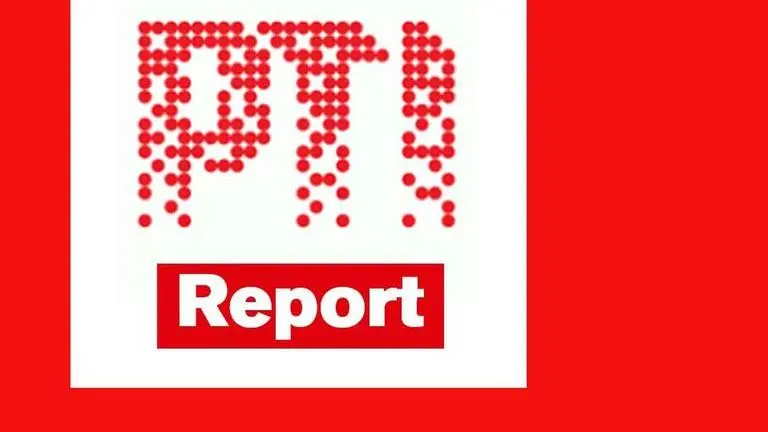Updated 4 October 2020 at 22:36 IST
US push for Arab-Israel ties divides Sudanese leaders
Sudan's fragile interim government is sharply divided over normalising relations with Israel, as it finds itself under intense pressure from the Trump administration to become the third Arab country to do so in short order — after the United Arab Emirates and Bahrain.
- World News
- 4 min read

Sudan's fragile interim government is sharply divided over normalising relations with Israel, as it finds itself under intense pressure from the Trump administration to become the third Arab country to do so in short order — after the United Arab Emirates and Bahrain.
Washington's push for Sudan-Israel ties is part of a campaign to score foreign policy achievements ahead of the US presidential election in November.
Sudan seemed like a natural target for the pressure campaign because of US leverage — Khartoum's desperate efforts to be removed from a US list of states sponsoring terrorism.
Sudan can only get the international loans and aid that are essential for reviving its battered economy once that stain is removed.
Advertisement
While Sudan's transitional government has been negotiating the terms of removing the country from the list for more than a year, US officials introduced the linkage to normalization with Israel more recently.
Top Sudanese military leaders, who govern jointly with civilian technocrats in a Sovereign Council, have become increasingly vocal in their support for normalization with Israel as part of a quick deal with Washington ahead of the US election.
Advertisement
“Now, whether we like it or not, the removal (of Sudan from the terror list) is tied to (normalization) with Israel,” the deputy head of the council, Gen. Mohammed Dagalo, told a local television station on Friday.
“We need Israel ... Israel is a developed country and the whole world is working with it,” he said.
“We will have benefits from such relations ... We hope all look at Sudan's interests.” Such comments would have been unthinkable until recently in a country where public hostility toward Israel remains strong.
The top civilian official in the coalition, Prime Minister Abdalla Hamdok, has argued that the transitional government does not have the mandate to decide on foreign policy issues of this magnitude.
When US Secretary of State Mike Pompeo visited Sudan last month, Hamdok urged him to move forward with removing Sudan from the list of state sponsors of terrorism and not link it to recognizing Israel.
“It needs a deep discussion within our society,” Hamdok told reporters earlier this week.
Several Sudanese officials, who spoke on condition of anonymity because they were not authorized to brief the media, said civilian leaders prefer to wait with any deal until after the US election.
The officials said military leaders seek a quick US-Sudan deal, including normalization with Israel, in exchange for an aid package.
The officials said the military fears incentives being offered now could be withdrawn after the US election.
One sticking point is the size of future aid to Sudan.
A meeting in Abu Dhabi last month — attended by Sudanese, US and Emirati officials — ended without agreement.
Less than USD 1 billion in cash was being offered, mostly to be paid by the Emirates, said a Sudanese official who took part in the meetings.
The Sudanese team, had asked for USD 3 billion to help rescue Sudan's economy.
Dagalo, the military official, tweeted Friday, after meeting with the US envoy to Sudan, Donald Booth, in South Sudan that he received a promise to remove Sudan from the terror list “as soon as possible.” An Israeli official said the talks on normalization remain purely between the US and Sudan.
“We're still not there,” said the official, who spoke on condition of anonymity because he was discussing a confidential diplomatic matter. He said the Israeli government hopes a deal can be wrapped up before the US election on November 3.
For Israel, a cordial relationship with Sudan would be a symbolic victory.
Sudan, a Muslim-majority African country, has long said it supports the Palestinian people in their calls for an independent state.
Khartoum hosted the historic Arab League summit after the 1967 Mideast War in which Israel captured the West Bank, Gaza Strip and east Jerusalem — lands the Palestinians seek for that state.
The conference approved a resolution that became known as the “three no's" — no peace with Israel, no recognition of Israel and no negotiations.
The designation of Sudan as a “state sponsor of terrorism” dates to the 1990s, when the nation briefly hosted Osama bin Laden and other wanted militants.
Sudan was also believed to have served as a pipeline for Iran to supply weapons to Palestinian militants in the Gaza Strip.
Osman Mirghani, a Sudanese analyst and editor of the daily newspaper al-Tayar, said Sudanese leaders don't have unlimited time to decide.
“The US offer of incentives .. will not last too long. It is related to the US presidential election on one side, and the number of Arab states that normalize,” he said.
(This story has not been edited by www.republicworld.com and is auto-generated from a syndicated feed.)
Published By : Press Trust Of India
Published On: 4 October 2020 at 22:36 IST
